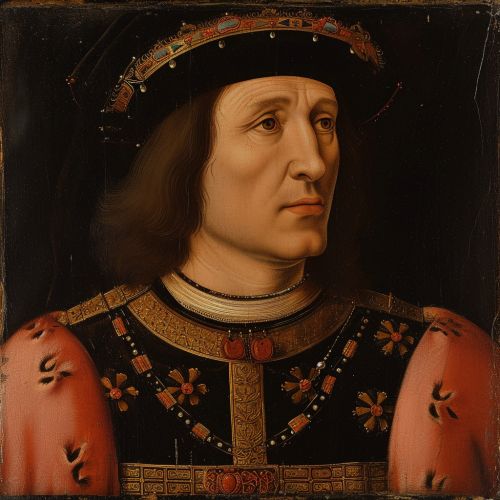Charles VI of France
Early Life
Charles VI (3 December 1380 – 21 October 1422), known as Charles the Well-Beloved and later as Charles the Mad, was King of France from 1380 to his death. He was a member of the Valois Dynasty, the fourth son of King Charles V and his wife, Joanna of Bourbon. Born in Paris, he was crowned King at the age of 11 following the death of his father.
Reign
Charles VI's reign was marked by political, military, and personal turmoil. He suffered from bouts of madness, which led to the rule of France being taken over by his uncles and later his wife, Isabeau, and his cousin, John. His reign saw the continuation of the Hundred Years' War with England, which had a significant impact on the political and social structure of France.
Mental Illness
Charles VI's mental illness, which began in 1392, was a defining aspect of his reign. His first recorded episode occurred on a hot August day when a leper reportedly rushed forward and grabbed his bridle, warning him that he was being betrayed. Later that day, in the forest of Le Mans, Charles attacked his own knights, killing four of them, and had to be restrained. This event marked the beginning of his bouts of madness that would persist throughout his life.


Impact of his Reign
Despite his mental illness, Charles VI's reign had significant impacts on France. His inability to rule effectively led to power struggles among the nobility, which further destabilized the country. The ongoing war with England also drained France's resources and led to social unrest. However, his reign also saw some positive developments, such as the growth of trade and the arts.
Death and Legacy
Charles VI died on 21 October 1422, leaving a divided and troubled kingdom. His son, Charles VII, succeeded him, but the power struggles and war that marked Charles VI's reign continued. Despite his troubled reign and personal struggles, Charles VI is remembered as a symbol of the challenges faced by medieval monarchs.
